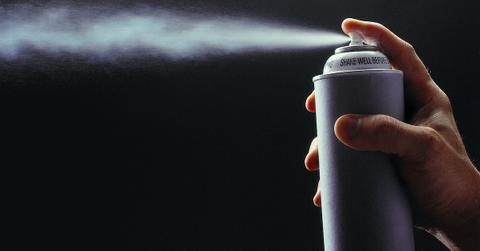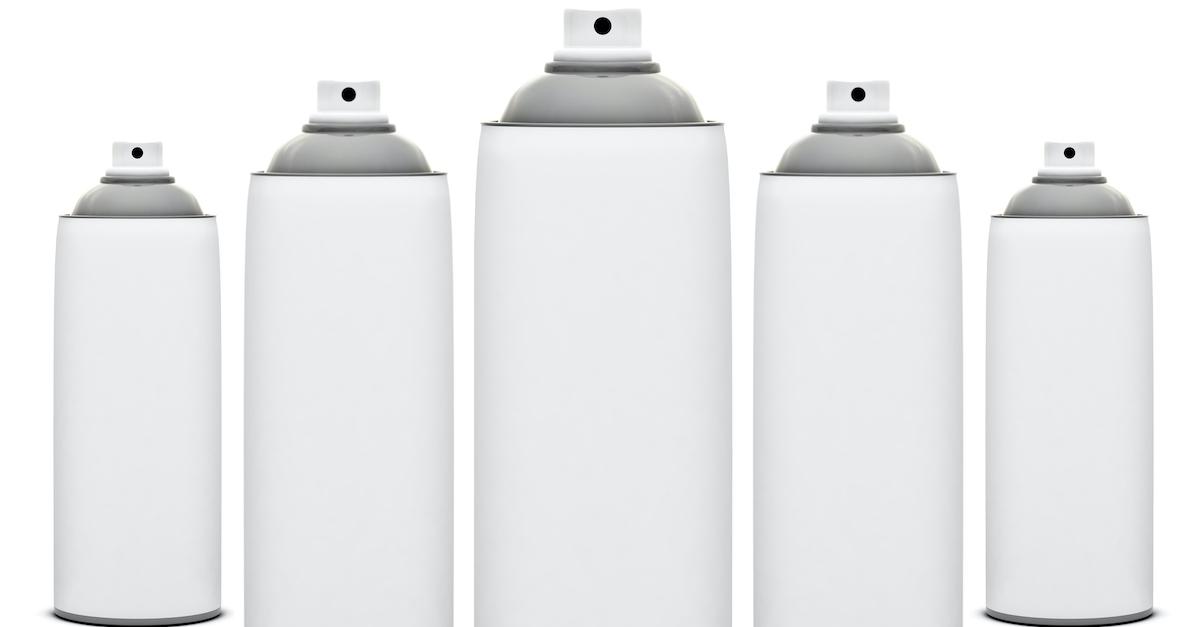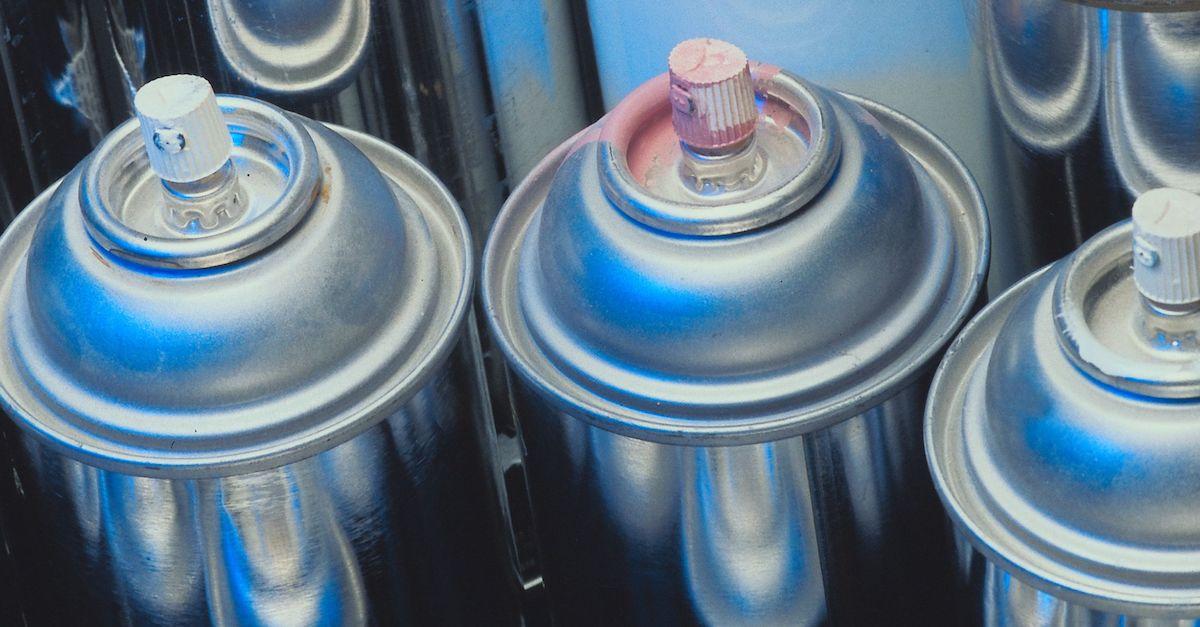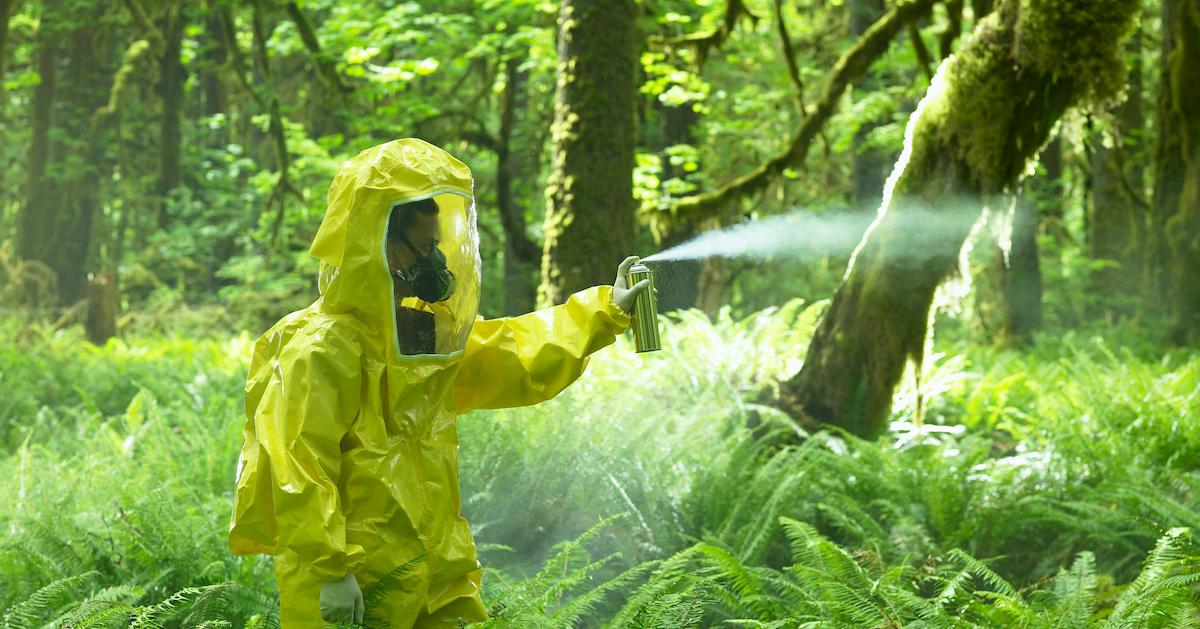CFCs Have Been Illegal For Years Now — Are Aerosols Still Dangerous?
Published Feb. 24 2021, 4:35 p.m. ET

There are numerous things that humans do to exacerbate the climate crisis on a daily basis. We relentlessly burn fossil fuels for energy, pollute waterways, demolish natural lands, and even sometimes inadvertently start wildfires. For a while, household pollutants such as aerosols served as major contributors to global warming, though they have since been updated and limited in certain countries across the globe.
So, are aerosols still considered dangerous? If so, how are they contributing to the ongoing climate crisis? Keep reading for everything you need to know about the environmental impact of those commonplace household sprays.

What is an aerosol?
There are a few types of aerosols — according to National Geographic, there are primary aerosols, which include anything that comes from the earth's surface, including dust, soot, or sea salt. Then there are secondary aerosols, which form when organic compounds collide, such as organic plant matter, or other materials, that contribute to haze.
In this sense, however, aerosols are self-dispensing cans that are highly pressurized, according to Nist.gov, that usually contain some sort of propellant. With the push of a valve that's generally on top of the metal, glass, or plastic non-refillable container, particles of suspended liquid are released into the air, in the form of a mist. You've most likely used them in the form of foams, lotions, spray paints, bug sprays, or other types of repellants.

Why are aerosols dangerous?
In the '70s, scientists began recognizing that chlorofluorocarbon (CFC) propellants, which are added to aerosols as a refrigerant, were creating a hole in the ozone layer, according to Meti. CFCs can cause chemical reactions that break down ozone molecules, and lower the ozone's ability to absorb ultraviolet radiation. So, in 1978, Sweden became the first country to ban CFCs, according to EarthSky, and in years to come, many other countries started following suit.
When countries started banning CFC-laden aerosols, they realized they were starting to receive more sunlight — apparently, pollution that came from aerosols had actually been causing fluctuations in sunlight, which has since been referred to as global dimming. To this day, aerosols still exist in our daily lives, but predominantly without CFCs. So, many wonder: are aerosols still considered to be dangerous?

Without CFCs, are aerosols still dangerous?
Now that countries such as the U.S. can no longer sell or produce products containing CFCs, aerosols contain propellants such as hydrocarbons and compressed gases like nitrous oxide, according to Scientific American. These compounds don't deplete the ozone layer like CFCs do. Aerosols, however, still present certain dangers.
Since aerosol cans are under pressure, they can explode if they're punctured or if they're depressurized incorrectly, according to Safety Management Group. Aerosol cans also often contain products that are damaging to the environment, such as insecticides, which can damage the environment without directly depleting the ozone layer.
Another danger regarding aerosol cans is disposal — leftover materials in these cans are generally deemed hazardous waste, and must be treated as so. Some cans can be recycled, but the cans must be properly depressurized so they can be cleaned. If they are thrown in a garbage compactor without proper cleaning or depressurization, they can also explode.

Aerosol cans still come with potential dangers, but at least they aren't decimating the ozone layer like they used to.